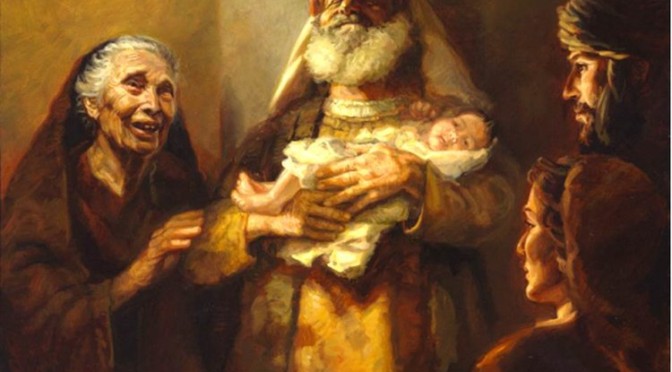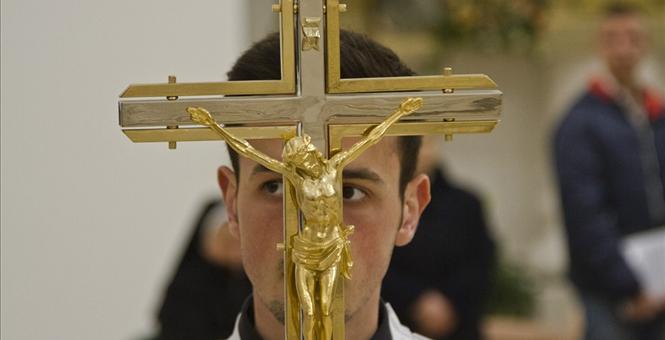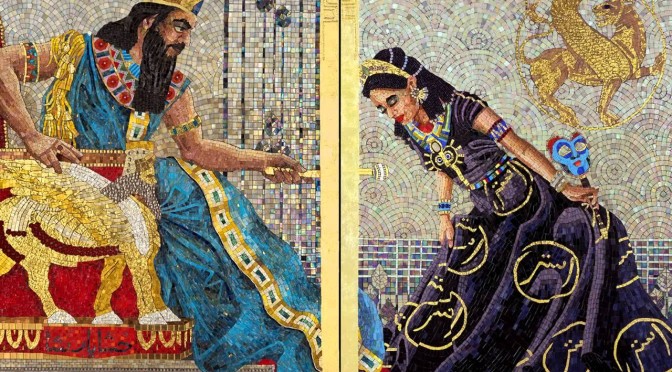**sermon art: Rainbow Jesus by Tony Rubino at fineartamerica.com
Caitlin Trussell with Augustana Lutheran Church on June 16, 2024
[sermon begins after two Bible readings]
Mark 4:26-34 [Jesus] said, “The kingdom of God is as if someone would scatter seed on the ground,27and would sleep and rise night and day, and the seed would sprout and grow, he does not know how. 28The earth produces of itself, first the stalk, then the head, then the full grain in the head. 29But when the grain is ripe, at once he goes in with his sickle, because the harvest has come.”
30He also said, “With what can we compare the kingdom of God, or what parable will we use for it? 31It is like a mustard seed, which, when sown upon the ground, is the smallest of all the seeds on earth; 32yet when it is sown it grows up and becomes the greatest of all shrubs, and puts forth large branches, so that the birds of the air can make nests in its shade.”
33With many such parables he spoke the word to them, as they were able to hear it; 34he did not speak to them except in parables, but he explained everything in private to his disciples.
2 Corinthians 5:6-10, 13-17 So we are always confident; even though we know that while we are at home in the body we are away from the Lord—7for we walk by faith, not by sight. 8Yes, we do have confidence, and we would rather be away from the body and at home with the Lord. 9So whether we are at home or away, we make it our aim to please him. 10For all of us must appear before the judgment seat of Christ, so that each may receive recompense for what has been done in the body, whether good or evil.
14For the love of Christ urges us on, because we are convinced that one has died for all; therefore all have died. 15And he died for all, so that those who live might live no longer for themselves, but for him who died and was raised for them.
16From now on, therefore, we regard no one from a human point of view; even though we once knew Christ from a human point of view, we know him no longer in that way. 17So if anyone is in Christ, there is a new creation: everything old has passed away; see, everything has become new!
[sermon begins]
I’d been joking that my Installation to Senior Pastor last week was a little like praying over a potluck after we’d started eating. After the fact, I think that was a little glib on my part. That morning, I had butterflies in my stomach. Sure, there were logistics to worry about – nothing like having my installation at the same time as the Greek Orthodox festival two doors down that would make parking a premium. (A big shout out to Jordan, Max, John, and Craig who served as parking greeters at our lots that day.) But the butterflies weren’t about logistics. They were about the new call between us as congregation and pastor. While there’s been trust between us, developed over the past 11 years, it will take time to develop trust anew. A few weeks ago, I said something similar to the staff – that they know me in my former role but we’re all getting to know each other in my new role. I’d been thoughtful since Pastor Ann’s retirement about both the authority that I had and the authority that I didn’t have during that transition. I was also clear that I was neither auditioning nor campaigning while the Call Committee and I interviewed each other behind the scenes. I was reassured by the shift that the Call Committee themselves made during those interviews about how pastor and congregation could reimagine our partnership anew. No small feat after 11 years together. The butterflies in my stomach embodied that reality.
Actual butterfly insects are a symbol of resurrection, a symbol of God doing something new when the way forward is unclear. And we ARE a resurrection people in unclear times in the wider church and in the world. How handy that the Second Corinthians reading reminds us that we walk by faith and not by sight…urged on by the love of Christ…living not for ourselves but for him who died and was raised for us. It has been said about pastors that loving God is the only way to serve the church over time because people can be hard to love. I would tweak that slightly to say about the church (not just its pastors) that loving Jesus is the only way to serve the world over time because people, all of us, can be hard to love.
In preparation for my Installation, Bishop Jim Gonia asked me to pick scripture for the service and to tell him why I picked it. As Bishop preached last weekend, he highlighted my scripture choices and remembered my words, “I love Jesus and I love the church enough to spend time using my gifts and leading in this way.” I’m repeating it in my sermon today because I want you to hear it from me. “I love Jesus and I love the church enough to spend time using my gifts and leading in this way.” Different people in the congregation have asked me over the past month why I’m doing this, why did I take this call? Embedded in their questions echoes Pastor Karen’s opening sermon line from the Mark reading last Sunday, “Are you out of your mind?!” Her preaching spotlighted our identity as the resurrected body of Christ and that we are to be of Jesus’ mind. Truly though, we can only hope that we are of Jesus’ mind as we begin this new partnership between pastor and congregation. I know that I wouldn’t be doing it otherwise.
Which brings me to the two parable stories that Jesus tells in the gospel according to Mark. Jesus tells these two stories so quickly that we almost miss them. And they are gems that shine hope throughout the whole of Mark’s gospel. At first blush, the first story is really NOT a very good story.[1] Someone plants a seed. The seed grows. No one knows how. In Mark’s gospel, no one ever knows what’s going on or what to do. The disciples bumble around. There are three endings to the gospel and an academic debate about which one is correct. (See Mark 16.) But this little parable in Mark 4 shines a light on the mystery. Oh, it’s still a mystery. But the good news is that we get to call it a mystery. The problem may be that we want an answer. But that problem is ours. It’s not the parables’ problem, not Jesus’ problem, and certainly not God’s problem. The mystery is our problem. We’re just not that powerful and all we have to do is watch a plant grow to remember that we control very little. The mystery of God’s kingdom is that it will have its way. The relief IS the mystery. God’s kingdom does not depend on our righteousness or insight.[2]
The second parable is like the first but in the greatest of all shrubs we get to sing along with the birds nesting in its shade – nesting ancient images of the tree of life within the cross itself. Perhaps we could joke about planting a new church called “Greatest of all Shrubs Lutheran Church.” The greatest of all shrubs paints a humble picture of the absurd, audacious, and awe-inspiring kingdom that adheres to God’s imagination and not our own. Who are we to question the gifts and promise of God’s imagination? Yet we do it all the time.
Here’s one example. There are those of us who celebrate our queer siblings in Christ as God’s creations in God’s own image, trusting that God knows God’s purposes even when God’s people struggle with how many ways there are to be human and different from each other. The church has damaged queer folks for centuries, at best ostracizing and at worst killing. I’m pretty sure Jesus’ teaching to love your neighbor as yourself, the second greatest commandment after loving God, the two commandments on which “hang all the Law and the Prophets,” I’m pretty sure Jesus didn’t state an exemption clause for such murderous and mal-intent against our queer neighbors.[3] Making amends includes our congregations’ invitations to various church-sponsored Pride events. I hope some of you can go. More than making amends is celebrating our queer friends, family, and church members as wonders of creation along with the rest of humankind.[4]
As we wrestle with scripture, our namesake Martin Luther laid down some guidance about the Bible, prioritizing scripture that points us to Christ. He compared scripture to the manger that holds the Christ child – a splinter here, a bent nail there, but cradles the baby Jesus perfectly. This perspective rescues the faithful from making the Bible an idol, or viewing it as a science or history textbook, or as a newspaper…you get the idea. This means that not every word in the Bible is equal to every other word. The Bible’s content is weighted in favor of Christ and him crucified which also means that Jesus teaching about the first and second greatest commandment to love God and love our neighbor as ourselves bear the weight of all the Law and the Prophets. That’s the priority for all faithful people including queer faithful people.
I’ve always thought of myself as a courageous person. Oh sure, I’ve had foibles, fears and phobias but, when it came down to it, I thought that I was of good courage to say the hard things and to do the hard things. I was wrong. Recently I said to my family systems coach that I’m “differently courageous after cancer, chemo, and complete remission.” Like any good counselor, he asked me to say more. Oddly, I really can’t explain it all that well. I may melt down about getting things done in the time available, but the fearlessness in doing the things feels like the transforming love of God. There’s a clarity to knowing that we’re just not that powerful, that human fragility is true, that the limits of knowledge are true, and that we need each other as humankind on this small blue dot in an otherwise uninhabitable universe.
More importantly, God so loved this small blue dot that God showed up in Jesus to show us how to live and how to love. No human is above any other human in God’s love. The grace of God transforms and directs us by God’s will. Our congregation, dare we say a mere shrub branch, is a place to sing in the shade, a place where God’s creatures rest from labor and danger while we celebrate the goodness of our creator revealed in ourselves and our fellow creatures. It’s as Pauline as it gets in Second Corinthians when our human point of view is subsumed by Christ’s point of view. “For the love of Christ urges us on because we are convinced that One has died for all…And he died for all, so that those who live might no longer live for themselves but for him who died and was raised for them.”
May our courage be humbled and enlivened by the faith of Christ. Amen.
______________________________________________
[1] Matt Skinner, Professor of New Testament, Luther Seminary, St. Paul, MN. Sermon Brainwave podcast for June 16, 2024. #969: Fourth Sunday after Pentecost (Ord. 11B) – June 16, 2024 – Working Preacher from Luther Seminary
[2] Ibid.
[3] Matthew 22:37-40
[4] Genesis 1:26 – Then God said, “Let us make humankind in our image, according to our likeness…”

![Pride: All the Law and the Prophets Hang on Loving God and Each Other [OR The Greatest of All Shrubs is NOT a Good Story]](https://caitlintrussell.org/wp-content/uploads/2024/06/rainbow-jesus-christian-lgbtq-christian-lgbt-gay-pride-tony-rubino-672x372.jpg)

![Saints in Light [OR The Mystery of Connection Through Death] Matthew 5:1-12](https://caitlintrussell.org/wp-content/uploads/2023/11/Communion-of-Saints.Elise-Ritter.sermon-Caitlin-Trussell.jpg)
![Practical Hope for Life Today [OR Listen, God is Calling] Mark 6:14-29 and Ephesians 1:3-14](https://caitlintrussell.org/wp-content/uploads/2021/07/receipt-hands-sermon-caitlin-trussell-672x372.jpg)
![Knowing Enough to Hope [OR Knowing Enough to Be Dangerous] Romans 5:1-8](https://caitlintrussell.org/wp-content/uploads/2020/06/Peony-bouquet-2020-672x372.jpg)

![Pops, Purity, and Promise [I Promise It’s Not What You Think] Matthew 5:1-12 and 1 John 3:1-3](https://caitlintrussell.org/wp-content/uploads/2017/11/1726618-John-Green-Quote.Perfect.Flawed.Loving.sermon-Caitlin-Trussell-672x372.jpg)
![Suffering Defies Logic [OR Mondo Cozmo Answers the Religious Question] Matthew 16:21-28 Romans 12:9-21 Exodus 1:22-2:10](https://caitlintrussell.org/wp-content/uploads/2017/09/theatlantic.umbrella.hurricane-harvey.sermon-Caitlin-Trussell-672x372.jpg)

